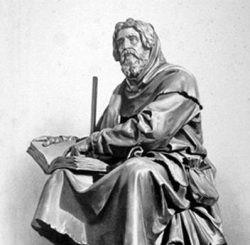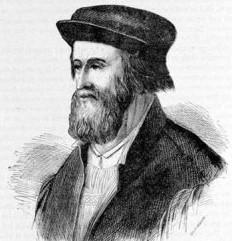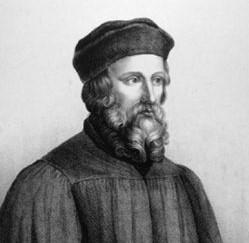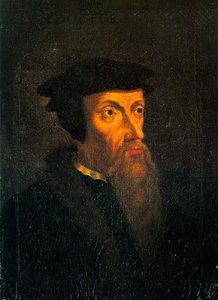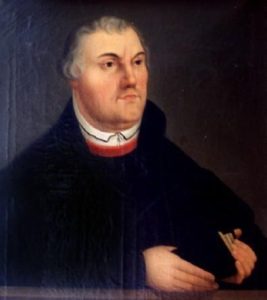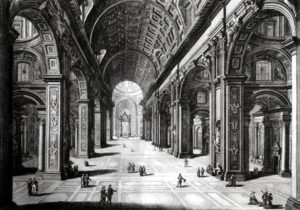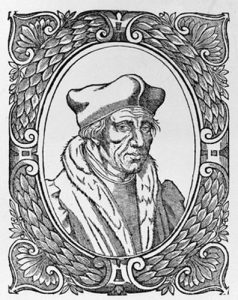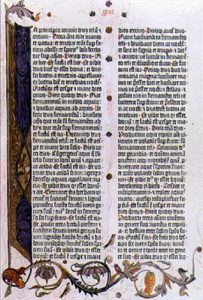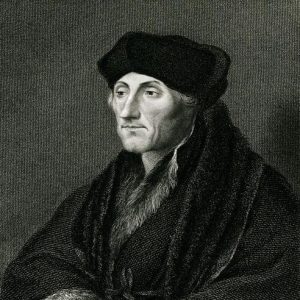The Reform of the Church
Well before Luther and Calvin, men had worked at reforming the Church. The picture to the right suggests this symbolic filiation.
They advocated a return to the simplicity of the Gospel, called into question the hierarchy of the Church and believed in the exclusive authority of the Bible
The main forerunners of the Reform movement were :
- Pierre Valdo in the XIIth century in France,
- John Wyclif in the XIVth century in England,
- Jan Hus between the XIVth and the XVth century in Bohemia
Their doctrine influenced Luther and the reformers of the XVIth century.

